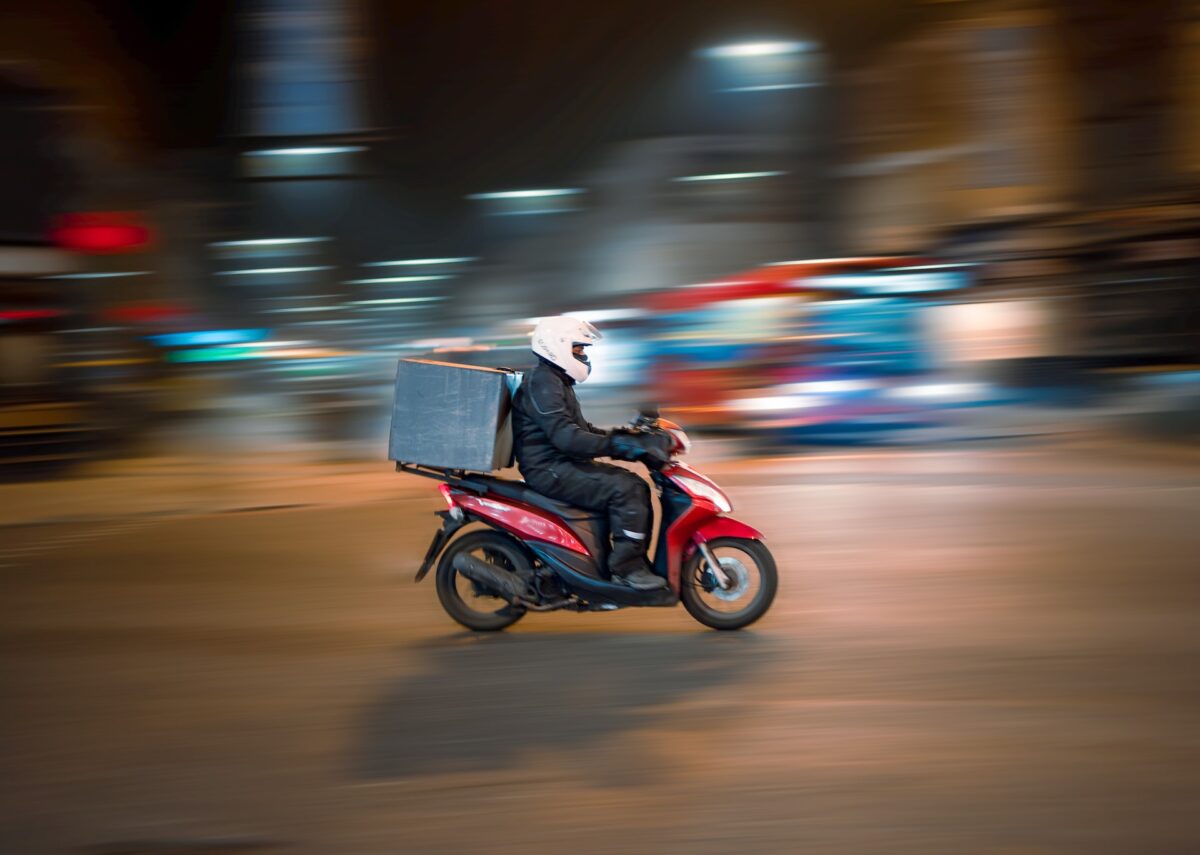What is Usage-Based Food Delivery Insurance? By Angelica Malin
Until you are involved in some form of work involving driving for commercial reasons, it is possible that you won’t realise just how many forms of insurance are available.
Private hire taxi drivers have their own specific cover, as do those who work for ride-share companies such as Uber. Regardless of what role you may play, if you drive any vehicle in the UK you will need valid insurance to cover accidents and third parties.
Food delivery drivers are no different, and they require a specific type of insurance to be taken out, especially if they are using their own vehicle.
What insurance do food delivery drivers need?
Anyone driving for commercial reasons requires the driver to have hire and reward insurance. In the case of these particular drivers, some form of food delivery insurance is required to protect themselves and any third party in the event of an accident.
Hire and reward insurance is designed to cover those whose role is to either carry passengers or goods for payment. In the case of public hire, it normally refers to taxi drivers who obtain fares by being flagged down or picking them up at designated taxi ranks. Private hire insurance is for those who only take pre-bookings.
Therefore, food delivery drivers would fall under the banner of private hire as their deliveries would all be ordered through an app, website, or telephone call. This may be to a food delivery service or direct to a restaurant or takeaway, but all food orders would be taken ahead of delivery.
Aside from hire and reward insurance, a food delivery driver may also need to take out social, domestic, and pleasure insurance cover if they are using their own vehicle to make deliveries. Some food delivery insurance policies are also based on usage.
What are usage-based and pay-as-you-go insurance?
Something that has been getting more popular over recent years is usage-based insurance. For careful drivers, this can be a boon – more on which later – and many regular car drivers are choosing to take out these kinds of policies. Taxi cab and delivery drivers can also gain from this type of insurance.
Usage-based insurance
This type of insurance has been developed to monitor driving habits. Data is transmitted in real-time from a device fitted in the car to a hub where the information is collected. It will be analysed, and from the results, the insurance company will be informed whether the driver is low or high risk.
It is sometimes called pay-how-you-drive, or pay-as-you-go insurance. You could possibly find a policy that monitors only mileage and not behaviour, but this would negate the other benefits of this type of insurance.
The UK has some of the safest roads in the world already. There are just 7 countries that have fewer road fatalities, and when you consider this includes San Marino, Micronesia, and the Maldives, the statistics look even more impressive. However, usage-based insurance has been put into place to try and make driving even safer.
Who qualifies for usage-based food delivery insurance?
Anyone whose role is to deliver pre-ordered food to a named destination for payment can take out usage-based insurance. Couriers too can apply for the same type of policy as they are also delivering goods in the same manner, albeit packages and documents rather than food.
Anyone working in either of these fields must take out some form of hire and reward insurance so that they can legally operate. But, usage-based insurance can be available to any of the following depending on the provider:
- Taxi drivers
- Limousine drivers
- Couriers
- Food delivery drivers
- Regular car owners
- Motorbike owners
In fact, as usage-based insurance becomes the standard, vehicle owners from all walks of life may choose to be insured in this way. But for those driving for a living, it makes even more sense.
One reason that many food delivery drivers and couriers are opting for usage-based insurance is that they can opt to pay only for the miles they cover. Private hire drivers can have lulls in their working days. They may have intermittent patches where pickups and deliveries are slow. So, it makes sense to have the option to be able to top up their insurance as they are on the move.



